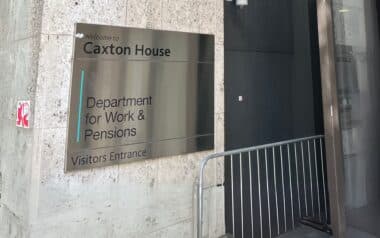With March just around the corner, a number of important financial changes are on the horizon, touching on a wide range of areas, from DWP benefit payments to train fares.
BirminghamMail reports that the Department for Work and Pensions (DWP) will be rolling out adjustments that could impact those receiving benefits. At the same time, changes in transport costs, housing taxes, and other financial aspects will be making waves across the UK.
It’s crucial to stay informed about these upcoming shifts that may affect household budgets. Here’s what you need to know.
Upcoming DWP Benefit Changes
Several benefit-related updates are expected in March. One major change is the shift in dates for some benefit payments.
These adjustments are part of the government’s ongoing efforts to streamline benefit distribution, but claimants should be aware of potential delays or changes in their payment schedule.
Additionally, some recipients may see modifications to the types of DWP benefits they receive, with new claim processes or eligibility criteria potentially affecting payments.
Train Fare Increases
Transport costs are also set to rise. Rail fares will increase by 4.6% starting in March, outpacing inflation for the second time in twelve years. This hike comes at a time when railcard prices will also see a significant rise—£5 more, marking a 17% increase.
The fare increment has been determined at 1% above July’s Retail Prices Index (RPI) inflation, which stood at 3.6%, significantly surpassing the 2.2% Consumer Prices Index (CPI) inflation commonly cited by officials.
While the government has described this as the lowest increase in three years, passengers will likely feel the pinch when purchasing tickets or renewing their railcards.
Interest Rate and Inflation Adjustments
The Bank of England‘s next monetary policy meeting is set for March 20, where the base rate will be reviewed. The base rate, which influences borrowing costs for consumers, currently stands at 4.5%. It was reduced during the last meeting in February.
The Bank’s decision could have broad implications for personal finance, particularly for those with variable rate mortgages or loans. Additionally, the inflation rate, which has risen to 3%, will remain a key concern for policymakers and households alike, shaping decisions across the economy.
Deadline for Household Support Fund and Winter Fuel Payment Claims
March 31 will also mark the end of the current phase of the Household Support Fund, which helps low-income households cover essential costs like food and fuel.
This fund has been extended several times but will conclude on March 31, 2025. Also, eligible citizens will need to apply for the 2024/25 Winter Fuel Payment by this date to receive up to £300 towards their heating bills for the winter season.
The window for claiming will close on the same day, making it crucial for those eligible to submit their applications to the DWP in time.
The Migration to Universal Credit
Another significant deadline is March 31, which also marks the last chance for those on legacy benefits to transition to Universal Credit. If individuals fail to apply for Universal Credit by this date, their payments will be stopped.
This deadline impacts those on five specific DWP legacy benefits, including Working Tax Credits, Child Tax Credits, and Income Support.
Stamp Duty Changes
For those looking to purchase property, March 31 is the final day to complete a transaction before the government’s increased Stamp Duty Land Tax (SDLT) rates come into effect. Any property transaction legally completed after April 1, 2025, will be subject to higher SDLT rates.
This change will affect first-time buyers, home movers, and investors. The date of legal completion is the key factor for SDLT calculation, not the date you exchange contracts or agree on a sale. If your transaction is not completed before the end of March, higher rates will apply.









